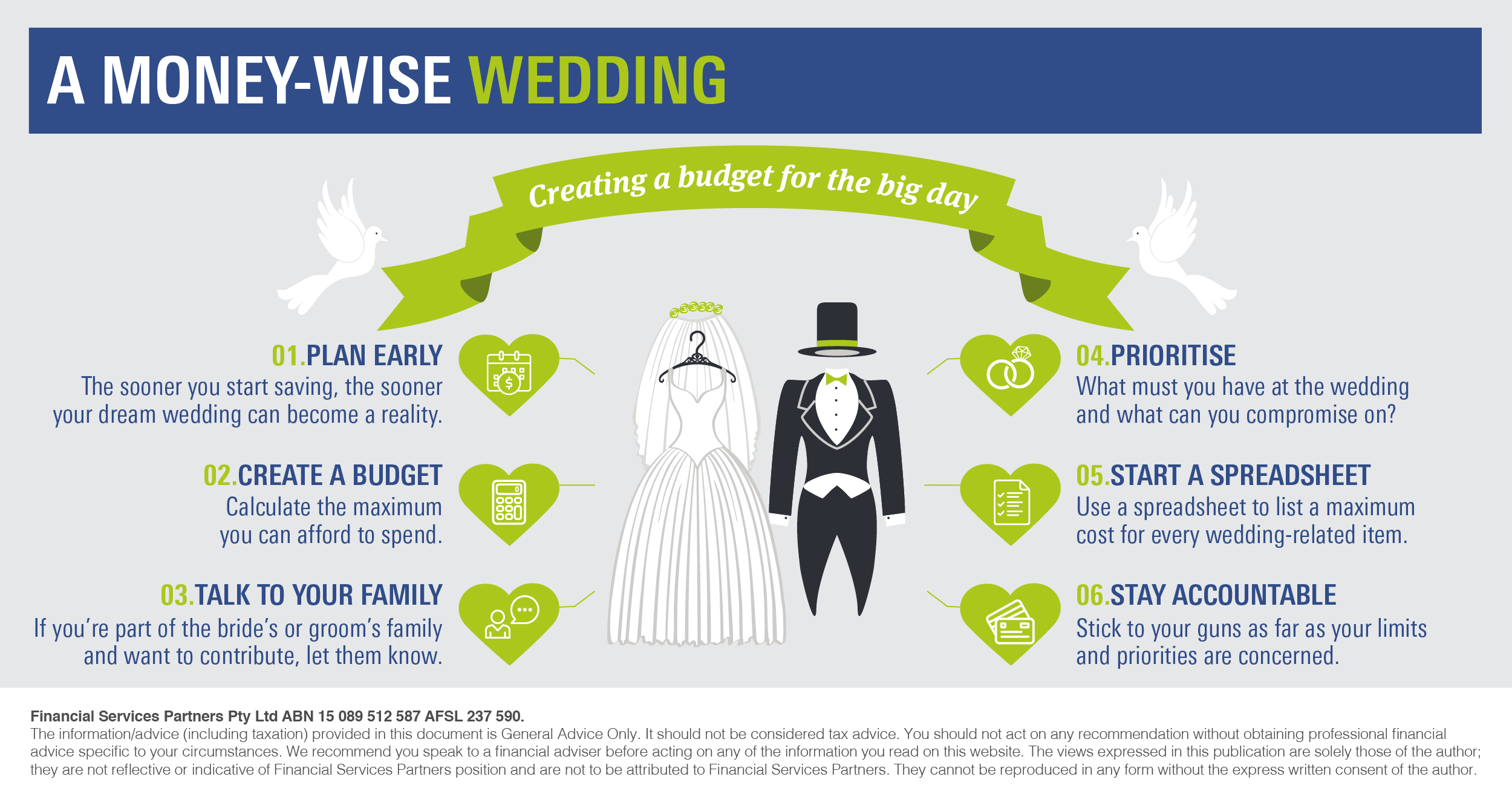A money-wise wedding: Creating a budget for the big day
Whether you’re planning a large, luxurious wedding or a small, intimate affair, smart budgeting could help free you from financial worries, so you can enjoy your special day. Following these steps may help ensure no one’s worried about debt on the honeymoon.
Following these steps may help ensure no one’s worried about debt on the honeymoon.
1. Plan early
Given that the average Australian wedding costs $36,200[1], the sooner you start saving, the sooner your dream wedding can become a reality. The day after the engagement is fine!2. Create a budget
Take stock of your income and calculate the maximum you can afford to spend on the wedding – and your ideal cost scenario.3. Talk to your family
If you’re part of the bride’s or groom’s family and want to contribute, let them know. You could contribute a set figure or fund a specific part of the ceremony, such as the flowers or venue.4. Prioritise
What must you have at the wedding and what can you compromise on? For example, do you want a live band but aren’t fussed about fancy table decorations? Agreeing on your priorities up front can help you clarify which aspects to save for and which to downplay or skip altogether.5. Start a spreadsheet
Once you have an idea of your budget and priorities, it’s time to dive into the details. Use a spreadsheet to list a maximum cost for every wedding-related item from bouquet to band and compare it with vendors’ quotes. Don’t forget to take into account hidden costs like insurance, corkage and the marriage licence as well as costs related to the rehearsal dinner and honeymoon.6. Stay accountable
Avoid blowing out your budget by keeping your spreadsheet up to date, setting up a wedding-expenses-only bank account, and sticking to your guns as far as your limits and priorities are concerned. If you’ve created your budget and despair of affording your dream wedding any time soon, don’t worry. Here are some tips to help you reign in your costs.- Limit your guest list to your favourite people: At $100 per head, every 10 guests cost you $1,000.
- Think outside the box when picking a wedding venue: A park, garden, art gallery or friend’s house may be more affordable than a hotel, and the natural ambience can save you money on decorations.
- Book an out-of-season wedding: It can be cheaper to schedule a wedding in winter, on a week night or a Sunday morning.
- Keep your menu simple: Stick with the specialties of the season and region, consider canapes or buffets over three-course meals, and ask for house spirits (not top-shelf varieties) or beer and wine.
Call in an expert
While you may call upon a wedding planner to help you organise your special day, a financial planner may be just as important. A professional financial adviser may help you create and stick to your budget as well as stay accountable – so you can focus on the important things, like celebrating with the people you love!- Australian Securities and Investments Commission, ‘How much can a wedding cost?’. MoneySmart. Available at: https://www.moneysmart.gov.au/managing-your-money/budgeting/simple-ways-to-save-money/how-much-can-a-wedding-cost ↑
Disclaimer: The views expressed in this publication are solely those of the author; they are not reflective or indicative of Financial Services Partners position and are not to be attributed to Financial Services Partners. They cannot be reproduced in any form without the express written consent of the author.
The information provided in this document, including any tax information, is general information only and does not constitute personal advice. It has been prepared without taking into account any of your individual objectives, financial situation or needs. Before acting on this information you should consider its appropriateness, having regard to your own objectives, financial situation and needs. You should read the relevant Product Disclosure Statements and seek personal advice from a qualified financial adviser. From time to time we may send you informative updates and details of the range of services we can provide. If you no longer want to receive this information please contact our office to opt out. Financial Services Partners Pty Ltd ABN 15 089 512 587, AFSL 237590





